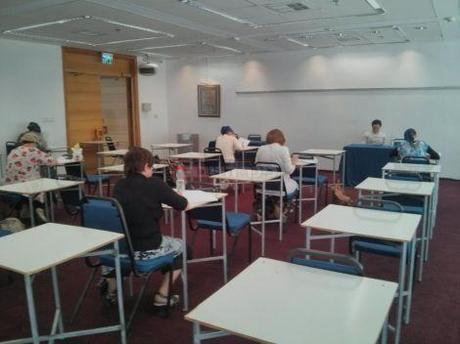Interestingly, the main opposition to women serving as mashgichot remains in their being unfit for the position, rather than any pure halachic objections. The opponents claim women are unfit because they are softer, weaker, and likely will not stand up to a strong-willed, obstinate, loud-mouth business owner.
source: Kikar and Ladaat

In my opinion it is not much of an issue - a woman who is not appropriate for the job will not get that job. If a woman does not have the strength or confidence to stand up and enforce her decisions, she will be put in a position where that is less necessary. Just like I would expect in most other situations a potential job candidate will usually not be given a job he or she cannot handle and is not appropriate for.
Some women are tough characters, and they could be given such jobs, while others are meeker and would be given other jobs. Just like men. Some men are tougher and would be appropriate for a position that requires standing up to a tough owner, while others are meeker and would be more appropriate to be in a position where toughness is not a requirement. It could be, as Rav Moshe Feinstein is quoted as saying, that most frum women are meeker, but that does not preclude that some are tougher and could take such jobs.
I heard Rav Shmuel Eliyahu on the radio last night. Rav Eliyahu has been a supporter of allowing women to become certified mashgichot. He agreed that the problem exists, but said there are ways to solve it, such as by having supervisors who will support the stance of the mashgichot against the tough owners and give them backing in a way that they wont be out there all alone standing up to a tough owner against their nature.
I don't see the problem as a reason to keep a policy to not allow women in these positions. Find the women who are appropriate. Find solutions for the ones who are meeker. It can all be done. And keep an eye on the situation - someone who is found to be not effective in a certain position despite all the solutions implemented, will surely have to be moved to a different position. Kashrut cannot be allowed to be adversely affected by this, but there is almost no reason it has to be.
------------------------------------------------------ Reach thousands of readers with your ad by advertising on Life in Israel ------------------------------------------------------
